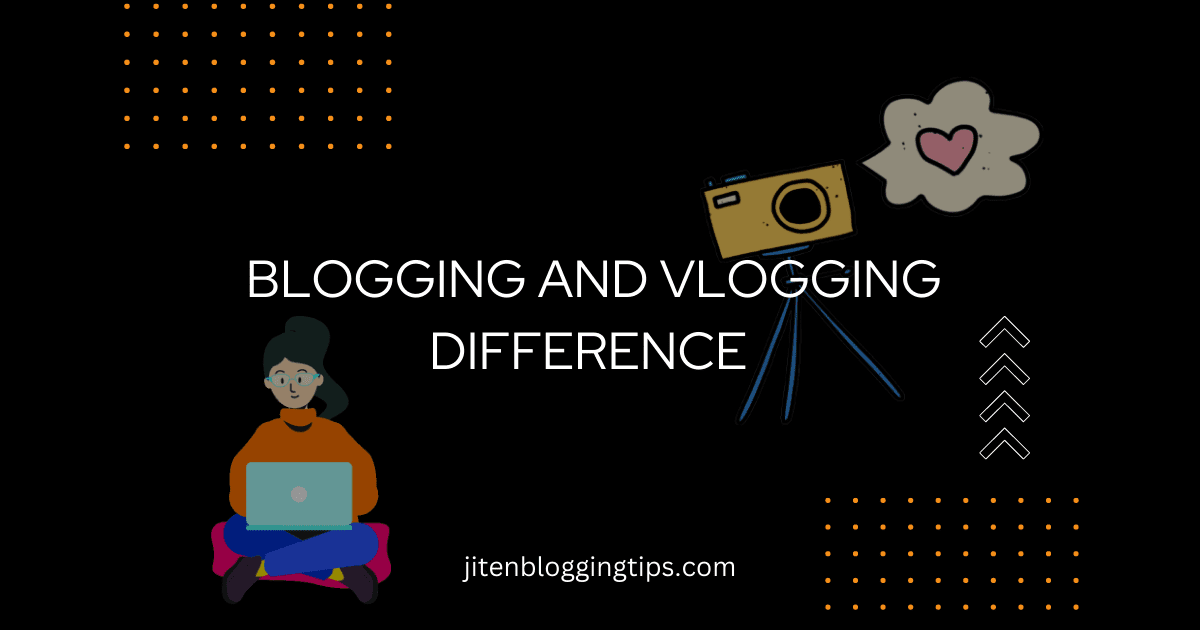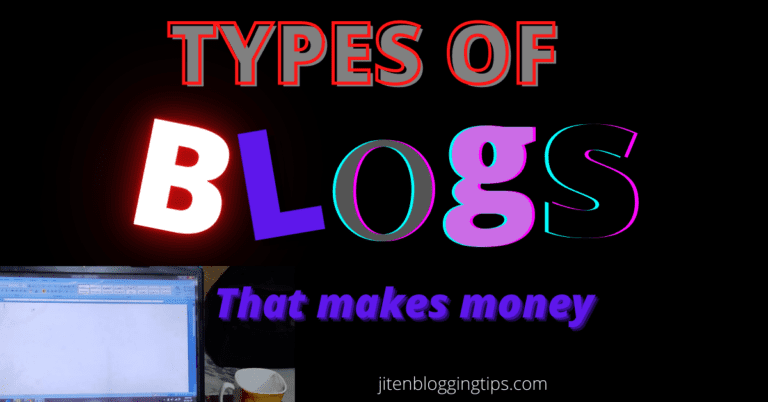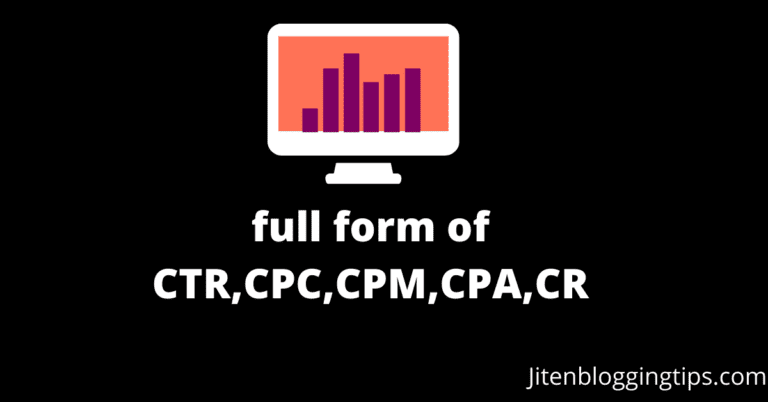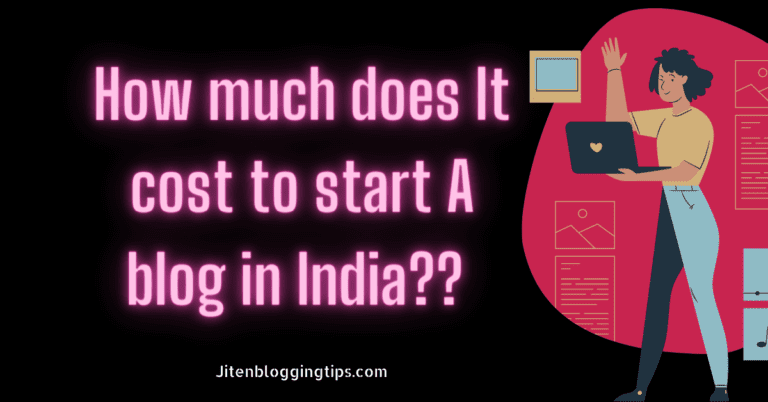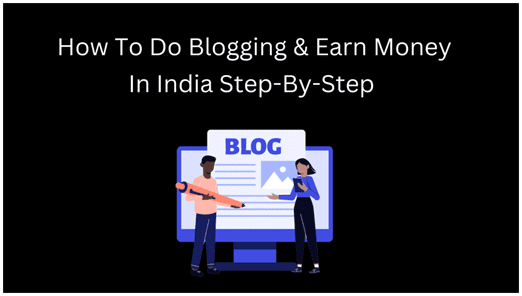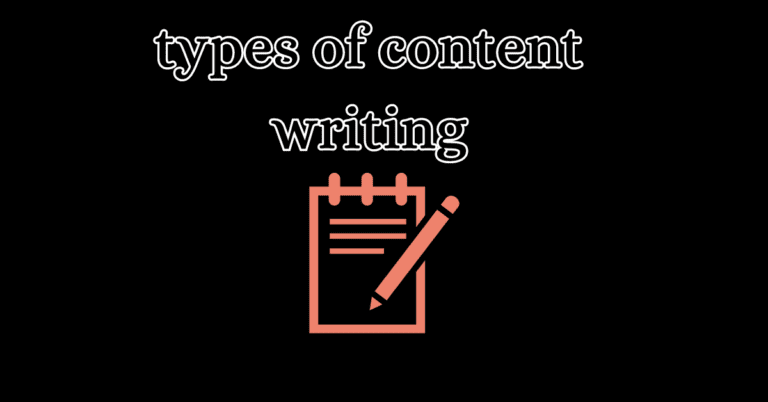Exactly what is the difference between blogging and vlogging
Blogging and vlogging are two forms of online communication that have become increasingly popular in recent years. Both involve creating and sharing content with a specific audience, but they differ in terms of the medium used to convey the message.
So through this guide you will get a clear picture about what is the difference between blogging and vlogging
what blogging means??
Blogging refers to the practice of writing and publishing articles or posts on the internet, usually on a dedicated website or platform such as WordPress or Blogger. Bloggers typically write about a specific topic or theme, and their articles may include text, images, and other media. Blogs can be personal or professional in nature, and they are often used to share opinions, experiences, or knowledge with a wider audience.
what vlogging means??
Vlogging, on the other hand, involves creating and sharing video content online. Vloggers typically use platforms such as YouTube or Vimeo to upload and share their videos, which can cover a wide range of topics and themes. Vlogs may include narration, interviews, or other types of video footage, and they are often more interactive and engaging than written blogs.
what are the types of vlogs??
There are many different types of vlogs that people create, depending on their interests and the purpose of their vlog. Some common types of vlogs include:
- Travel vlogs: These vlogs document the vlogger’s travels and adventures, often including footage of the vlogger exploring new places, trying local food, and meeting new people.
2. Lifestyle vlogs: These vlogs showcase the vlogger’s daily life, including their routine, hobbies, and interests.
3. Beauty and fashion vlogs: These vlogs focus on makeup, fashion, and beauty-related topics, often including tutorials and product reviews.
4. Food vlogs: These vlogs feature the vlogger cooking, eating, and exploring different cuisines and restaurants.
5. Gaming vlogs: These vlogs are focused on video games, often including footage of the vlogger playing games and providing commentary.
6. Education vlogs: These vlogs provide educational content, often on a specific topic or subject, and are often aimed at teaching viewers something new.
7. Fitness and health vlogs: These vlogs focus on health and fitness, often including workout routines, nutrition advice, and tips for maintaining a healthy lifestyle.
8. Comedy vlogs: These vlogs are designed to be humorous and entertaining, often featuring jokes and sketches.
9. Political vlogs: These vlogs cover political topics and issues, often providing analysis and commentary on current events.
10. Music vlogs: These vlogs focus on music, often including footage of the vlogger playing music, attending concerts, and exploring different genres and artists.
One key difference between blogging and vlogging is the medium used to convey the message. Blogs are primarily text-based, while vlogs are primarily video-based. This means that vloggers have the added challenge of creating visual content and using video editing software to put their vlogs together.
Another difference is the type of content that is typically shared. While both bloggers and vloggers can cover a wide range of topics, vloggers may be more likely to focus on personal experiences and stories, while bloggers may be more likely to share information and opinions on a specific topic or issue.
Overall, the main difference between blogging and vlogging is the way in which the content is presented and consumed. Blogs are typically read, while vlogs are watched. Both can be effective ways to share information and engage with an audience, but they require different skills and approaches.
To get you in more deep lets elaborate each one
Blogging and Vlogging difference

- Blogging typically involves writing and publishing text-based articles, while vlogging involves creating and sharing video content.
This means that bloggers will need to have strong writing skills and be able to craft compelling and engaging written content, while vloggers will need to have strong visual storytelling skills and be able to create visually appealing and engaging videos.
- Blogs can be written in a variety of styles, including informative, personal, or persuasive. They may include text, images, and other types of media such as audio or video clips. Vlogs, on the other hand, are primarily video-based and may include narration, interviews, or other types of video footage.
- Blogging and vlogging can be used for a wide range of purposes, including sharing personal experiences, offering opinions or insights, providing information or news, or promoting a product or service.
However, the way in which the content is presented and consumed may vary depending on the medium used. For example, a blog post may be more suitable for presenting a detailed analysis of a topic, while a vlog may be more effective for sharing a personal story or experience.
- Blogging and vlogging can both be used to build and engage with an audience, but they may attract different types of followers. For example, a blog focused on a specific topic or theme may attract readers who are interested in that particular topic, while a vlogger who shares personal experiences and stories may attract a more diverse audience.
- Bloggers and vloggers may use different tools and platforms to create and share their content. Bloggers may use blogging platforms such as WordPress or Blogger to write and publish their articles, while vloggers may use video sharing platforms such as YouTube or Vimeo to upload and share their videos.
- Both bloggers and vloggers may need to consider SEO (search engine optimization) in order to improve the visibility of their content and attract more readers or viewers.
However, the strategies used to optimize content for search engines may differ depending on the medium. For example, a blogger may need to use keywords and other techniques to optimize their written content for search engines, while a vlogger may need to consider factors such as the title and description of their videos, as well as the tags and keywords used to describe the content.
Which is better blogging or Vlogging

here are some Important points that must be not neglected before getting started with any blogging or Vlogging
- Time and effort: Both blogging and vlogging require time and effort to create and share content, but the amount of time and effort may vary depending on the medium.
Blogging typically involves writing and formatting text, which can be time-consuming, especially if you are creating detailed or lengthy articles. Vlogging, on the other hand, may require more time and effort to create and edit video content, as well as to upload and share the videos on various platforms.
blogging is one of the growing skill of this digital era an you even can get rewards in the form of cash if done correctly, but it requires a right approach and path to get started without messing up, if writing excites you than you can have learn deeper in one of my detailed article on how to start a blog in india 2023
- Audience engagement: Both blogging and vlogging can be used to engage with an audience, but they may attract different types of followers and encourage different levels of engagement.
Blogs may encourage readers to leave comments or share the content on social media, while vlogs may encourage viewers to leave comments, likes, or shares, and to subscribe to the vlogger’s channel.
- Monetization: Both blogging and vlogging can be used as a way to monetize your content and earn income from your online activities. Bloggers may be able to monetize their content through advertising, sponsored content, or by selling products or services.
Vloggers may also be able to monetize their content through advertising, sponsorships, or by selling products or services, as well as through YouTube’s Partner Program, which allows vloggers to earn a share of the ad revenue generated by their videos.
- Flexibility: Blogging and vlogging can both offer a high degree of flexibility in terms of when and where you create and share your content. Bloggers can write and publish their articles from anywhere with an internet connection, while vloggers can create and edit their videos using a variety of tools and software, and then upload and share their videos on various platforms.
- Collaboration: Both blogging and vlogging can be done independently or as part of a team, depending on the goals and resources of the creator.
Bloggers may collaborate with other writers or editors to create and publish their content, while vloggers may collaborate with other videographers, editors, or producers to create and share their videos.
Overall, while blogging and vlogging have many differences, they also have some similarities in terms of the time and effort required to create and share content, the potential for audience engagement and monetization, and the flexibility they offer in terms of when and where you create and share your content. Both can be effective ways to communicate with an audience and share information, opinions, or experiences online.
Can we start blog and vlog together??
Technically the answer is Yes! but it may become overwhelm and that will miss-focus your goal, So according to my opinion you should first focus on one then if you are more comfortable you can even run both a blog and a Vlog at a time.
Conclusion:
Both blogging and vlogging can be used to build and engage with an audience, but they may attract different types of followers. Blogs may be more suitable for presenting detailed analyses of specific topics, while vlogs may be more effective for sharing personal stories or experiences.
Both blogging and vlogging can be used as a way to monetize your content and earn income from your online activities, but the strategies and opportunities for monetization may differ depending on the medium.
while blogging and vlogging have many differences, they also have some similarities in terms of the time and effort required to create and share content, the potential for audience engagement and monetization, and the flexibility they offer in terms of when and where you create and share your content.
Both can be effective ways to communicate with an audience and share information, opinions, or experiences online, but they require different skills and approaches.
I hope now you have a clear idea about what is the difference between blogging and vlogging
